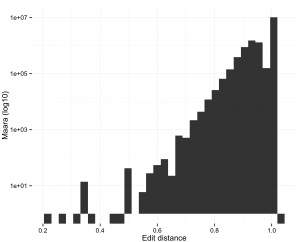We invite papers to a panel organised in Finnish political science association annual conference (10.-11.3.2016):
In late 1990s and early 2000s, the notion of information society was used in examining and framing the impact that information technology had on society. Today, the notion of digitalization is used in reflecting upon the same topic, but technologies have greatly evolved and matured. Commonly referenced examples of digitalization include changes in employee-employer relations (e.g. Uber, Wolt), automation and platformization (e.g. Airbnb, Facebook). Digitalization has also influenced the overall society, e.g., the role of education institutions and easily accessible education through massive open online courses (MOOCs). In this workshop, we ask what are the impacts of digitalization upon political science. In particular, our interests relate to two dimensions:
Methodologically, digitalization influences data collection and analysis (in general, see Ahonen, 2015). The field of computational social science takes advantage of novel data sources (e.g. Lazer et al., 2009) or new methods that can be used for data analysis (e.g., Cioffi-Revilla, 2010). Novel data sources refer to (often online) digital trace data provided by users, such as Twitter (e.g., Zhang & Counts, 2015) or mobile phones as trackers (e.g., Raento et al., 2009; Eagle & Pentland, 2006). From an analytical perspective, the question is how we can use algorithmic tools, such as machine learning or simulation, to examine social phenomena. There is an emerging trend to apply these tools in political science research (e.g., Levy & Franklin, 2013; Ahonen 2015). Moreover, there are signs that empirical political science research that has calmly flown in the academic mainstream, such as the examination of texts of political party programs, increasingly takes into account the possibilities that computational methods offer (e.g., several articles in Volkens et al., 2013; see also Grimmer & Stewart, 2013).
New political phenomena also open up for empirical researchers to examine. First, digitalization creates new avenues to speak and act, importantly various social media platforms. These avenues have interested political scientists for some time, such as political campaigns (e.g. Lilleker et al., 2011; Strandberg, 2008) and protests (e.g., Asad & le Dante, 2015; Varnali & Gorgulu, 2013). Another direction for empirical research would be to apply science and technology studies framework. In that area, tools and environments are seen as constructed and the question is why certain choices have been made in the construction process (Gillespie, 2012).
In this workshop, we invite papers that address the question “What should, could, and should not political scientists study given digitalization and by means that include digital methodologies?”.
- The “shoulds” can arise, for instance, from pressing concerns to tap new digital methods to examine tsocial media discourse concerning immigration, refugees, terrorist acts and frozen or ongoing political and military conflicts, and to draw inferences concerning networks of actors under examination (e.g., Hoegh et. al., 2015; Horne & Bestwater, 2015; Weidmann, 2015).
- The “coulds” derive, for instance, from the enabling capacity of the digital methodologies to examine data in substantially larger proportions than entrenched methods, and to engage in new kinds of quantitative and quantitative-assisted qualitative examination (see, e.g., Grimmer & Stewart, 2013).
- Finally, the “should nots” are situated where political scientist have to seriously consider to which types of political power they render services on the one hand and on the other to which political emancipatory efforts they dedicate themselves (see, e.g., Ajana, 2015; Crampton, 2015).
Each paper should examine a case that illustrates the actual (realized and proven) or potential (possibly and promising) influence of digitalization upon theoretical, methodological or empirical aspects of political science research.Those willing to participate in the workshop are kindly asked to send a 500 word abstract at the maximum to all workshop organizers not later than 18 January 2016. Those whose papers are accepted for presentation should deliver a full manuscript not later than two weeks before the conference, meaning a deadline of 25 February 2016. We prefer English contributions for the inclusion of other than Finnish-speakers only, but we also accept proposals for papers in Finnish or Swedish.
Panel organizers
